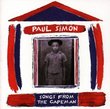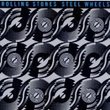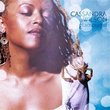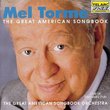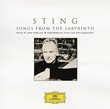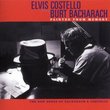| All Artists: Benjamin Britten, Steuart Bedford, Peter Pears, James Bowman, John Shirley-Quirk Title: Britten: Death in Venice Members Wishing: 0 Total Copies: 0 Label: London / Decca Release Date: 2/7/1990 Album Type: Import Genre: Classical Styles: Opera & Classical Vocal, Chamber Music, Historical Periods, Classical (c.1770-1830) Number of Discs: 2 SwapaCD Credits: 2 UPCs: 0028942566927, 028942566927 |
Search - Benjamin Britten, Steuart Bedford, Peter Pears :: Britten: Death in Venice
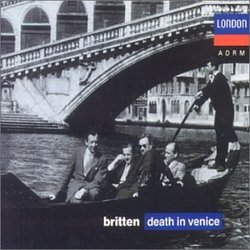 | Benjamin Britten, Steuart Bedford, Peter Pears Britten: Death in Venice Genre: Classical
Death in Venice is arguably Benjamin Britten's most heartrending and personal Opera. Composed relatively late in his life and under very dire conditions (he put off major surgery to finish it) Britten at the time clearly m... more » |
Larger Image |
CD DetailsSynopsis
Album Description Death in Venice is arguably Benjamin Britten's most heartrending and personal Opera. Composed relatively late in his life and under very dire conditions (he put off major surgery to finish it) Britten at the time clearly must have identified with the psychological and emotional dilemma of Mann's main character Aschenbach given the scores many intensely inspired moments. As usual, Britten wrote the main role with his longstanding companion tenor Peter Pears in mind whose definitive performance here will surprise no one. If you've enjoyed Britten's more familiar Operas such as Peter Grimes and Billy Budd, Death in Venice is the sensible next step. Similarly Requested CDs
|
CD ReviewsGreat peformance of underrated Britten opera Klingsor Tristan | Suffolk | 08/23/2005 (5 out of 5 stars) "This recording has had the field to itself for around a quarter of a century until very recently a competitor finally arrived with the issue of the Hickox version on Chandos. Perhaps that is a measure of its strengths. This could be said to be the most personal of all Britten's operas. It was written sub specie mortis when he was very ill and he deliberately postponed major surgery until he had finished it. It was his last outpouring of love, both for the man and the voice of Peter Pears. And, of course the part fits Pears like a glove. It has to be admitted that, while Britten always wrote perfectly for his lover's unique voice, the parts themselves were not always such a good fit (Albert Herring, Lysander, even Grimes, for example). Aschenbach, on the other hand, is his part par excellence. The coolly objective aesthete, observing and chronicling beauty from the outside, who is brought low by a sudden eruption of the Dionysian side of his nature seems, on the evidence of his performances, to be a part Pears was born to play. No-one since has bettered him. Tear (available on video) takes objectivity too far: he stands outside the part and seems to be an observer of the observer. Rolfe Johnson is fine as the aesthete, less convincing in his moral decline. Langridge (on the new Chandos CD) is more a man of action than Pears, more ready to involve himself in life, and consequently his descent into physical and spiritual degeneration seems to have less distance to travel, heart-breaking though he makes the final scenes. His very different portrayal is probably the only credible rival to Pears. Of course, Pears sings the part ravishingly, penetrating all the shades of meaning in the recitatives, climbing great heights in the more lyrical passages. The 'Phaedrus' aria is perhaps the most sublime and beautiful thing done by both composer and singer. This opera was certainly Pears' masterpiece, even if it remains debatable whether it was Britten's. These days Alan Opie seems to have monopolised the multiple Mephistophelean baritone parts. And very good he is, too. But it is fascinating to return to the composer's original choice, John Shirley-Quirk. He really sings the part and demonstrates what a good 'sing' most of it is. The more extreme figures perhaps lack something of the character Opie invests them with (Fop or Entertainer, for example: Shirley-Quirk doesn't do camp!), but the Traveller, the Gondolier and the Hotel Manager benefit from the greater lyricism in the voice. For the first time in the Decca canon of his operas (Noye excepted) Britten doesn't conduct this performance. By the time it was made, he was too ill. Steuart Bedford, who takes on the task, was fully briefed and the composer's intentions were no boubt made very clear throughout the sessions. It is, as it was in the theatre, as satisfying a reading as you could have expected from Britten himself. James Bowman as Apollo and all the bit-parts taken by members of the English Opera Group are admirably sung and performed. A great performance of a great part in a great (if underrated) opera. Why hesitate? " One of the best operas by Britten Sungu Okan | Istanbul, Istanbul Turkey | 11/27/2003 (5 out of 5 stars) "This is a must have for any Britten or 20th Century Music admirers. As you know, this opera is based on short story (in same name) by Thomas Mann. Libretto was written by Myfanwy Piper (Britten's close friend and librettist as well as "The Turn of the Screw")"Death in Venice" is a 2 act (17 scenes) opera and this is one of the last works of Britten. I think, this is the best opera with "Peter Grimes" and "Billy Budd" of composer. Because of this opera was written in his last period, Britten was used atonality and politonality in some passages. He was used a chamber orchestra: 2 flutes, piccolo, 2 oboes, 2 clarinets, bass clarinet, 2 bassoon, 2 horns, 2 trumpets, 2 trombones, tuba, timpani, harp, piano, a small string ensemble. Only, the percussion section is large: gongs, bells, whip, 2 or more snare drums, bass drum, tenor drum, tom-tom, cymbals etc. (at least 4 or 5 players).And important roles are only three:
Gustave Aschenbach (a famous writer, about 50 year old) Tadzio (a 15-year old, Polish boy and no singing role)The Traveller, Elderly Fop, The Gondollier, Hotel Manager, Barber of Hotel, Voice, of Dionysus, Conductor of a small Orchestra (all seven role are singing by a bariton!)And other minor roles given to the members of chorus (ex. tourists, strawberry-seller, the family, of Tadzio...)Aschenbach role is tenor and this was written specially for Peter Pears (as usual, because of Britten's lover!!) and, all seven roles was written for John Shirley-Quirk. The preformers of this roles are they in this recording, but the conductor is not Britten (like the other his Decca opera recordings), the conductor is Steuart Bedford (still, he is a great performer of Britten). Because, the composer was ill, but he was supervised the recording, still, this recording made in 1974, 2 year before the death of composer.Because of subject, the situation of "all seven roles given a bariton" may be explained which, Aschenbach is a victim of one man and he may be change is appereance and he gradually change Aschenbach's life. But, this is a mistake. Actually, Aschenbach (when he see Tadzio in Venice, and he to fall in love!!!) decides to live in Venice (in spite of there is cholera in Venice!) and in the end of opera, he deads with because of his destiny. All seven roles (a bariton), by chance, only help Aschenbach to change his life.The partiton is realist and hard, because of the opera tells about a crazy love story and spirit conditions of an artist narrated with a modern style. In recitatives, Aschenbach writes his book about the impressions of Venice and only piano accompanies to Aschenbach (this like, in old style, in Bach or Handel, in recitatives basso continuo and harpischord accompanies to soloist).In other words: this is a must have for any Britten, 20th Century Music or opera fans. This box set have a thick booklet includes synposis, libretto.Highly reccomended." |

 Track Listings (32) - Disc #1
Track Listings (32) - Disc #1
